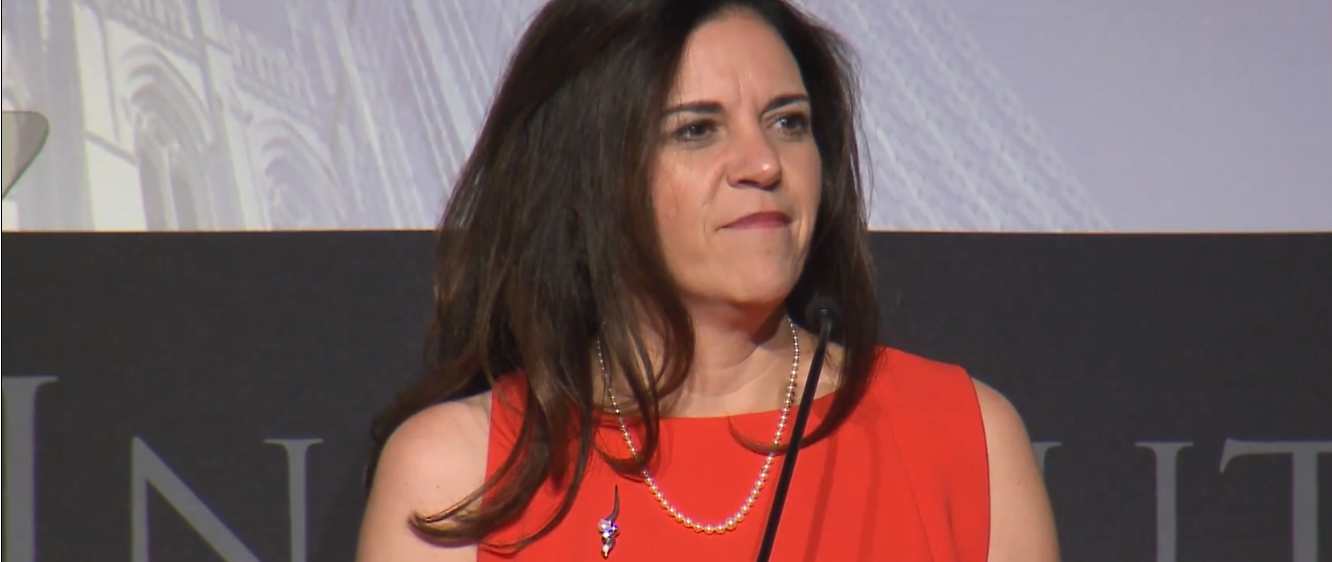by Margarita Mooney Clayton on November 7, 2018
Delivered on October 17, 2018 in Grand Rapids, Michigan
The most important lessons I’ve learned about the importance of virtue to sustain free societies came from my many trips to my mother’s homeland of Cuba, starting in 1994, when I was a junior at Yale. My very first night in Havana, a male prostitute called my hotel room. He knew I was alone and he knew what room I was in. I threw all the plastic furniture in front of my door, and knelt down by my bed to pray to God for protection.
During my 7 trips to Cuba over the next decade, I saw what happens to the human heart when people are prohibited from starting a business, punished for going to church, and denied access to information other than that from the communist party. All around me, men and women were using their bodies as an instrument of market exchange.
Those trips hammered home to me just how different my life would have been if my mother had not fled Cuba when she was 20.
But I also met many political dissidents and faithful Christians there, and I saw how the human aspiration for freedom cannot be squashed, not even by the most totalitarian regimes. I’ll never forget one heroic Cuban priest who preached one day on these verses from Corinthians:
“We are afflicted in every way, but not constrained; perplexed, but not driven to despair; persecuted, but not abandoned; struck down, but not destroyed; always carrying about in the body the dying of Jesus, so that the life of Jesus may also be manifested in our body.”
Although my struggles are nothing compared to the dissidents I met in Cuba, I haven’t always had it easy in the academy. Studying for a Ph.D. in sociology at Princeton, most people identified with the left; whereas I’m a conservative Catholic woman whose social justice heroes include John Paul II and Mother Teresa. When others criticized two of the last century’s most holy people for not having progressive politics, I really wanted to show people their effectiveness in caring for the sick, dying and oppressed lay precisely in a holistic vision of the human person and the common good.
Seeing my angst, someone finally told about Acton University. When I attended, I met people like Sam Gregg and other fantastic scholars who helped me better understand the intersection of Christianity and philosophical anthropology with economics and the social science.
I’m grateful to live in a country where I not only have the formal protection of academic freedom, now as a tenured professor at Princeton, but that I also have the freedom to found an educational nonprofit, which I call Scala—the Latin word for ladder. St. Benedict used the image of Jacob’s ladder from the Bible to remind his monks that the ascent to God requires descending in humility.
I founded Scala because too many institutes of higher education have abandoned their mission to train students to use their minds well to seek the truth. As a result, we have increasing chaos in our culture and politics; chaos that threatens to undermine the institutions necessary sustain a free society—including educational institutions committed to the pursuit of truth.
The moral relativism, aggressive secularism and cultural decay all around students makes so many of them feel like they are living in George Orwell’s 1984 or Aldous Huxley’s Brave New Worlds.
In these troubled times, it may well be that people of faith are called to sacrifice our comforts in order to defend the more important gifts of our faith and our freedom, remembering that our lives are not our own, but belong to our creator God to whom we owe every breath.
But even when things seem dark, my trips to Cuba made real to me what the Bible tells us: God gave us freedom; and these present struggles—no matter how big they are—can never take that away.
I also tell my students that they too should go to Acton’s many activities, where they will find an always-growing community of faith-filled, truth-seeking people fighting for freedom, reviving cities, and spreading the message about how entrepreneurship can help reduce poverty.
